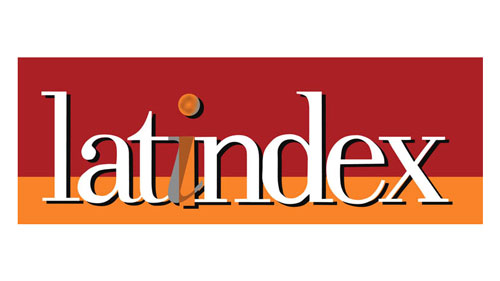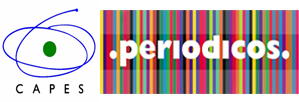Decolonial pedagogies for teaching English in the online context: a practice report
DOI:
https://doi.org/10.26512/rhla.v21i2.43444Keywords:
Decolonial pedagogies, Online teaching, English language teachingAbstract
This practice report seeks to investigate how activities developed based on decolonial practices for synchronous online English language classes as additional language can promote reflections on new ways of teaching and learning, analyzing, from the teacher's perspective, the possibility of changes in our conceptions of teaching and our experiences. The present report is theoretically based on concepts referring to online teaching (RABELLO, 2021; HODGES et al., 2020), teaching additional languages in the online context (TEH, 2021; NG, 2020), decoloniality and decolonial pedagogical practices (MIGNOLO; WALSH, 2018). We consider that, through the practice report, it would be possible to abandon the conviction that we learn languages for communicative purposes using only the approaches discussed in the academy, without taking into account the resistance and reexistence movement that permeates a culturally diverse curriculum, and tread new directions for our academic and professional journey taking into account aspects of decolonial theory. Thus, we believe that the decolonial pedagogies have the potential to promote greater engagement and provide dialogues capable of promoting social transformations and challenging the orientations and postulations usually belonging to the Global North.
Downloads
References
GARRETT, N. Computer-assisted language learning trends and issues revisited: integrating innovation. The Modern Language Journal, v. 93, p. 719-740, Dec. 2009. Disponível em: <https://onlinelibrary.wiley.com/doi/abs/10.1111/j.1540-4781.2009.00969.x>. Acesso em 15 maio 2022.
GROSFOGUEL, R. Dilemas dos estudos étnicos norte-americanos: multiculturalismo identitário, colonização disciplinar e epistemologias descoloniais. Tradução de Flávia Gouveia. Cien. Cult. Revista da SPBC, São Paulo, v. 59, n. 2, 2007.
HODGES, C. et al. Diferenças entre o aprendizado on-line e o ensino remoto de emergência. Tradução de Danilo Aguiar, Américo N. Amorim e Lídia Cerqueira. Revista da Escola, Professor, Educação e Tecnologia, v. 2, 2020. Disponível em: <https://escribo.com/revista/index.php/escola/article/view/17>. Acesso em: 15 maio 2022.
JOHNS HOPKINS UNIVERSITY. Synchronous vs. asynchronous distance learning activities. Johns Hopkins University School of Education, Center for Technology in Education, 2010.
MALDONADO-TORRES, N. Sobre la colonialidad del ser: contribuciones al desarrollo de un concepto. In: CASTRO-GÓMEZ, S.; GROSFOGUEL, R. (Coord.). El giro decolonial: reflexiones para uma diversidad epistêmica más allá del capitalismo global Bogotá: Siglo del Hombre Editores; Universidad Central, Instituto de Estudios Sociales Contemporáneos, Pontificia Universidad Javeriana, Instituto Pensar, 2007. p. 127-167.
MALDONADO-TORRES, N. A topología do ser e a geopolítica do conhecimento. Modernidade, império e colonialidade. Tradução de Inês Martins Ferreira. Revista Crítica de Ciências Sociais, Coimbra, v. 1, n. 80, p. 71-114, mar. 2008.
MIGNOLO, W. D.; WALSH, C. E. On decoloniality: concepts, analytics, praxis. Durham, NC: Duke University Press, 2018.
MOITA LOPES, L. P. da. Inglês no mundo contemporâneo: ampliando oportunidades sociais por meio da educação. Texto-base do Simpósio da TIRF (TESOL International Research Foundation), realizado em São Paulo, 2004.
NG, C. H. Communicative Language Teaching (CLT) through synchronous online teaching in English Language preservice teacher education. International Journal of TESOL Studies (Special Issue “ELT in the time of the Coronavirus 2020”, Part 1), v. 2, n. 2, p. 62-73, 2020.
OLIVEIRA, L. F. de. O que é uma educação decolonial. Revista Nuevamérica, v. 149, p. 35-39, 2016.
RABELLO, C. R. L. Aprendizagem de línguas mediada por tecnologias e formação de professores: recursos digitais na aprendizagem on-line para além da pandemia. Ilha do Desterro, Florianópolis, v. 74, n. 3, p. 67-90, 2021.
TEH, W. Communicative Language Teaching (CLT) in The Context of Online Learning: A Literature Review. International Journal of TESOL & Education, v. 1, n. 2, p. 65-71, 2021. Disponível em: <http://i-jte.org/index.php/journal/article/view/23>. Acesso em: 26 jan. 2022.
WALSH, C. E. On decolonial dangers, decolonial cracks, and decolonial pedagogies rising. In: MIGNOLO, W. D.; WALSH, C. E. On decoloniality: concepts, analytics, praxis. Durham, NC: Duke University Press, 2018. p. 81-98.
WALSH, C.; OLIVEIRA, L. F. de; CANDAU, V. M. Colonialidade e pedagogia decolonial: para pensar uma educação outra. Arquivos Analíticos de Políticas Educativas, v. 26, n. 83, 23 jul. 2018. <http://dx.doi.org/10.14507/epaa.26.3874>. Acesso em: 20 abr. 2022.
Downloads
Published
How to Cite
Issue
Section
License
Copyright (c) 2022 Revista Horizontes de Linguistica Aplicada

This work is licensed under a Creative Commons Attribution-NonCommercial-NoDerivatives 4.0 International License.
Articles published by the Journal Horizontes de Linguística Aplicada are licensed under a Creative Commons Attribution-NonCommercial-NoDerivatives 4.0 International License.
By publishing in Horizontes de Linguística Aplicada, authors agree to the transfer of economic copyright to the journal. Authors retain their moral rights, including the right to be recognized as the creators of the work.
Authors and readers are free to:
Share — copy and redistribute the material in any medium or format
Under the following terms:
- Attribution — You must give appropriate credit , provide a link to the license, and indicate if changes were made . You may do so in any reasonable manner, but not in any way that suggests the licensor endorses you or your use.
- NonCommercial — You may not use the material for commercial purposes .
- NoDerivatives — If you remix, transform, or build upon the material, you may not distribute the modified material.
- No additional restrictions — You may not apply legal terms or technological measures that legally restrict others from doing anything the license permits.





